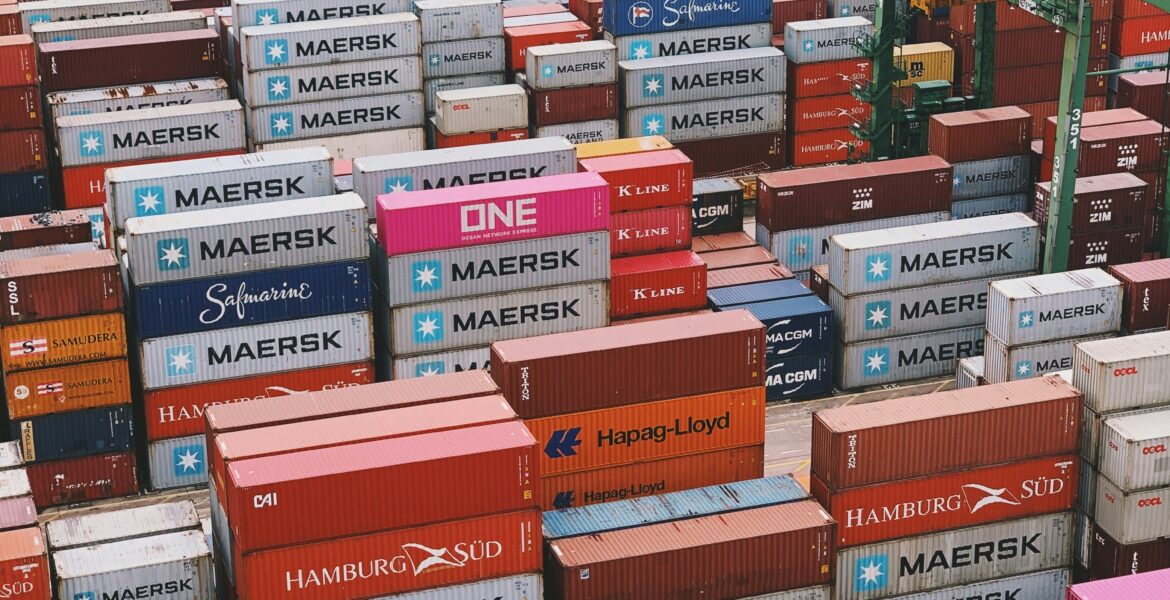Photo by syahmi syahir on Unsplash
The ongoing global trade war has created major uncertainty for businesses operating on both sides of the Atlantic, including the EU.
One key area of Donald Trump’s trade policy is China and the question is: how will China respond to these policies and what will be the impact on global markets?
What is clear is that never before have tariffs garnered such interest. Tariffs, it is also clear, are now seen by some as a necessity to correct trade imbalances and revive domestic production.
President Trump, most recently, announced a 90 day pause on most of the tariffs and the EU responded by doing likewise.
But this delay may prove only strategic and some, such as the respected Foundation for European Progressive Studies, say that by postponing implementation, his administration just buys time for relocation, ensuring that when the tariffs finally strike, they disrupt a smaller slice of the value chain.
This website has garnered some reaction from across the spectrum – from politics to the business and NGO world – to gauge what key players are saying about Donald Trump’s hugely controversial tariff plans.
The European Union is among those hardest hit by what have become known as “Trump’s tariffs”, with a 20 percent levy on all goods from the EU entering the United States. That is double the tax imposed on Britain.
The EU has been urged by many to work closely with the World Trade Organization (WTO) and global partners to de-escalate the crisis through diplomatic channels.
That is what it did last week with a high level delegation despatched by the European Parliament for talks with representatives of the US Congress.
The assembly’s delegation for relations with the United States travelled to the US capital on Wednesday for discussions which lasted until last Friday.
The visit by MEPs had other things on the agenda but took place against the backdrop of President Trump’s recent announcement of sweeping tariffs on global trade partners.
In Washington DC, the delegation, led by Brando Benifei (S&D, Italy), met with representatives of the US Congress in a visit overshadowed by the ongoing global trade war.
Just ahead of this visit, European Commission President Ursula von der Leyen held a phone call with Chinese Premier Li Qiang to discuss the state of EU-China relations. She stressed the responsibility of Europe and China, as two of world’s largest markets, to support a strong reformed trading system, free, fair and founded on a level playing field.
It all comes on the heels of Donald Trump sending shockwaves through the global economy with his new tariffs, marking what is likely a turning point in economic history.
The crucial question now is how Europe should respond to a decision that may shape the coming years.
The tariffs represent a milestone in economic history. What is claimed to have be Liberation Day (April 2) brought outrage and retaliatory measures from a number of America’s trade partners and not least China.
Political leaders in Brussels, including Bernd Lange, chairman of the European Parliament’s International Trade Committee, have reacted with fury.
The German Socialist said, “These unjustified, illegal and disproportionate measures can only lead to further tariff escalation and a downward economic spiral for the US and the world as a whole. Because of this decision, US consumers will be forced to carry the heaviest burden in a trade war.”
His sentiments are echoed by co-leader of The Left in the EU Parliament, Martin Schirdewan (Die Linke, Germany), who says, “The working class are always the first to suffer in war, and a trade war is no different. Trump’s tariffs will hurt European industry and the American working class first and foremost. While the EU must react with our own trade measures, we need targeted tariffs that hit Trump’s allies and the American oligarchs who are enriching themselves at the expense of workers.”
Another senior MEP, Terry Reintke, co leader of the Greens/EFA Group in the European Parliament, cautions that tariffs ultimately hurt everyone and will drive up prices for products like cars in the EU and in the US. The deputy demands that the EU response must be clear and decisive, adding, “We will not let Donald Trump divide us.”
Criticism has cascaded down from the business community in Europe as well with BusinessEurope Director General Markus J. Beyrer saying additional duties on cars and car parts will harm both Europe and the US. They will, he warns, add costs and could have a negative impact on existing investments on both sides of the Atlantic.
“Instead of increasing tariffs, the EU and the US should be committed to eliminating duties to generate more market opportunities and stimulate investments,” he notes.
The European Federation of Food, Agriculture and Tourism Trade Unions (EFFAT) also voices deep concern.
The EU exports more than €30 billion worth of food and agricultural products to the U.S. each year, including wine, cheese, chocolate, olive oil, and spirits. In return, the EU imports key commodities like nuts, soy, beef, animal feed, and wheat from the U.S. This deeply intertwined trade relationship sustains hundreds of thousands of jobs—many of them in small businesses and rural communities.
“These tariffs unfairly target European producers and workers, putting pressure on wages, job security, and market stability. The EU must act now to support affected branches and save jobs, preventing a race to the bottom in labour standards,” warns Enrico Somaglia, EFFAT General Secretary.
But a tit-for-tat approach may not be the solution, it adds, warning that additional retaliatory trade restrictions may further destabilise markets, drive up food prices, and endanger food security.
As the European Union is still digesting the shock of Trump tariffs and preparing its response, it is worth taking a look at the bigger picture of what is happening.
Anna Kolesnichenko, a policy analyst on economic issues for the Foundation for European Progressive Studies (FEPS), a leading Brussels-based think tank, says the trade shock from Trump’s tariffs will clearly be disruptive for European exporting industries and may cause contraction in production.
However, there is a silver lining to this story that may turn to be a major boon, she goes on.
“It is well known that the trade regime that we had so far has produced many distortions in the global economy: some countries are running massive current account surpluses (China and Germany), others (notably US) are in current account deficit.
Trump is correctly concerned about this.
“Trump’s method, however, is sub-optimal, to put it mildly. A much better solution would be capital controls on financial flows to the US, which would cause also rebalancing of trade.”
Trade experts, like Christian Nasulea, Professor at the University of Bucharest and co-author of “Trade in a Time of Tariffs”, called for a cautionary and strategic response, adding the EU should only respond with tariffs on US imports that have easy substitutes elsewhere.
“Tariffs on essential goods must be avoided to keep inflation in check, particularly for vulnerable consumers. At the same time, trade barriers with other partners should be eliminated without delay.”
Elsewhere, Adam Bartha, director of EPICENTER, the European Policy Information Centre, says that while the political urge to retaliate against Trump’s tariffs is “understandable, the economic reality is undeniable: any new EU tariffs will be paid by EU citizens.”
As Charles Grant, Director of the Centre for European Reform points out, Donald Trump’s second presidency is certainly shaking up the geopolitical landscape.
“In every lifetime,” he states, “there are a few events that mark turning points in history, such as the fall of the Berlin Wall in November 1989, al-Qaeda’s attack on the World Trade Centre in September 2001 – and now Donald Trump’s return to the US presidency in January 2025. Though he has been in office less than three months, Trump’s words and actions are already creating tectonic shifts in geopolitics.”
The economic consequences of Trump imposing punitive tariffs on the likes of Canada, Mexico, the EU, the UK and China will be considerable, he believes.
“Tariffs,” he says. “push up inflation. Trade wars inevitably reduce trade and thus curb economic growth, while the uncertainty over further trade-hindering measures is dampening confidence.”
Grant argues that most of the consequences are harmful but some are beneficial.
“By my count, Trump’s return has led to seven negative consequences, and three positive results.”
We hear a lot about the negatives but what are the positives?
First, Trump is promoting European unity, Grant says, adding, “The EU tends to integrate during crises.”
Second, Germany, says Grant, “seems set to restore its leading position in the EU.”
The third “positive” is that Britain is moving closer to Europe.
“Trump,” he adds, “has put a booster rocket under UK-EU co-operation. In the coming years it will become closer, though how fast and how far it goes, remains to be seen.”
While the overwhelming reaction to the tariffs has been critical, some have warmly welcomed them, saying they are a “wake up call” to Europe and the rest of the world.
They include Frank Furedi, from MCC Brussels, a think tank, who said, “From a U.S. domestic perspective, Trump is speaking to the forgotten workers, bringing jobs and defending those left behind.
“But from a European standpoint, he’s delivering a much-needed and costly wake-up call: Europe must face its productivity issues, embrace efficiency, and stop kowtowing to misguided anti-business environmental and energy policies.”
He goes on, “Trump may be the catalyst Europe needs to reclaim its competitive edge, yet it’s a shame it took him, not European elites, to force the continent into facing its economic realities.”
Donald Trump has made a particularly turbulent start to his 2nd term as president.
The choppy waters he’s chosen to navigate have just become even more stormy.




